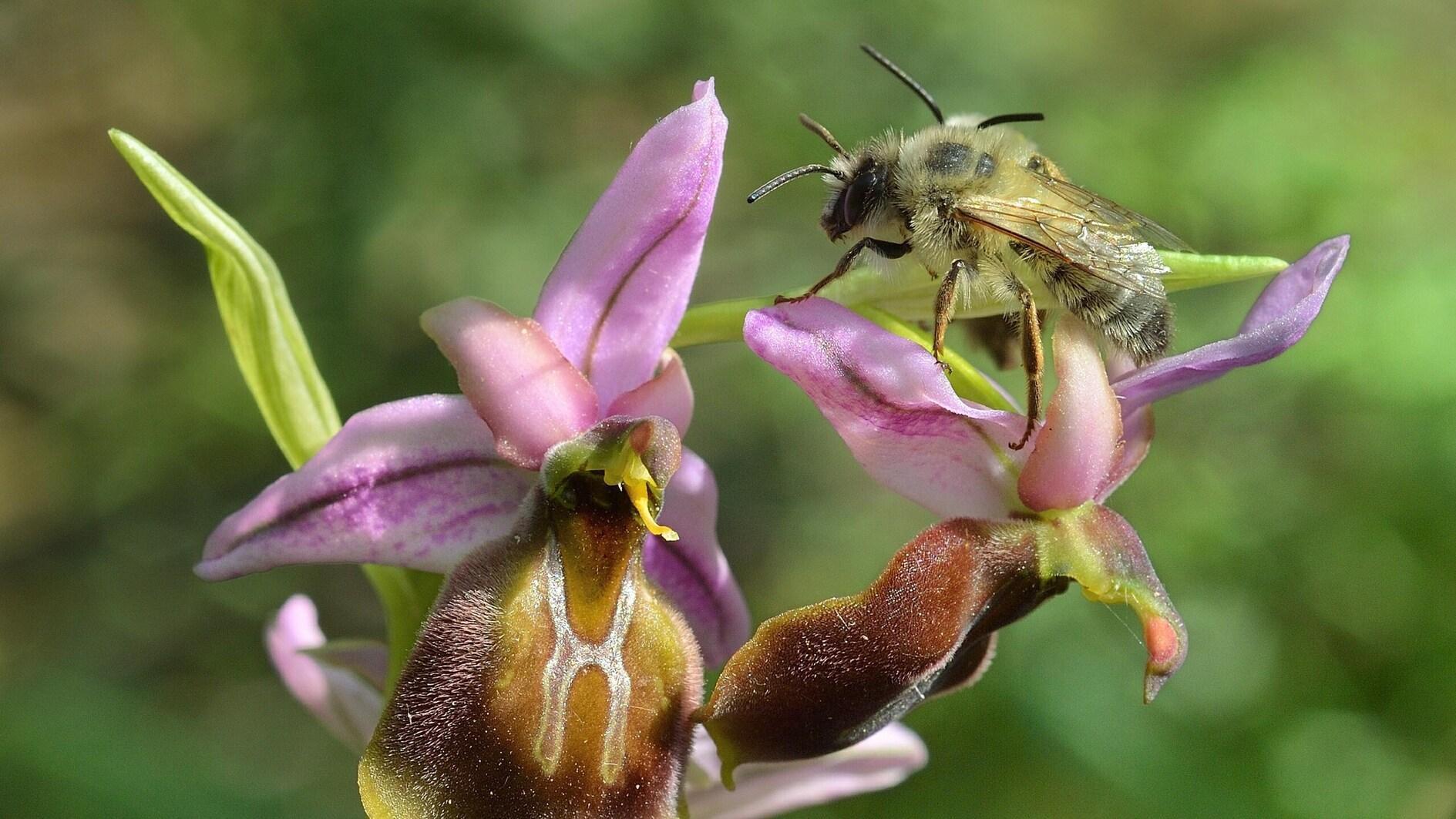Project made to protect the ‘Lycian Orchid’
MUĞLA

The Mediterranean Conservation Society and Ege University are working together to carry out a project to ensure the continuation of the Lycian salep species.
Orchids, which have more than 30,000 natural species in the world and more than 200 in Türkiye, are known for being very fragile plants. It was explained that orchids need moist soil, fungi and pollinators to continue their life cycle and that they are easily affected by the slightest change in the region they live in.
It is reported that the disappearance of orchids is an important warning system that something is wrong in nature. It was announced that almost all of the orchids in Türkiye are under threat and that there are hundreds of species on the verge of extinction.
Ophrys Lycia, an endemic orchid species named after the “Land of Light, Lycia,” was discovered in a village cemetery by Swiss botanist Jany Renz in 1980. The species is only found in a narrow area in the Kaş district of the southern province of Antalya in the world.
This heavenly corner of Türkiye, famous for its sarcophagi and ancient theaters intertwined with nature, unfortunately, succumbed to the construction brought by tourism. While the distribution areas of the Lycian salep are disappearing one by one, the number of individuals in nature is now expressed in the hundreds.
A project is underway in collaboration with the Mediterranean Conservation Society and Ege University for the survival of this rare species. Experts emphasize that the uncontrolled harvesting of its tubers to produce salep powder, along with the use of herbicides in cemeteries — one of its key habitats — is a serious threat to its future.
Recognized as Critically Endangered (CR) by the International Union for Conservation of Nature (IUCN), the Lycian orchid is in urgent need of protection.
Comprehensive and integrated efforts are required to protect Türkiye’s orchids. In response to this urgent need, the Mediterranean Conservation Society has taken a crucial step by partnering with Ege University to implement a holistic conservation strategy for the Lycian orchid.
The project aims to preserve the Lycian orchid in the medium term by maintaining live specimens in natural conditions and, in the long term, by storing pollen and seed samples in the National Gene Bank. The conservation approach includes controlled cross-pollination for seed production, cultivation of seedlings and adaptation of propagated plants to their natural environment.
Parent plants selected from wild populations were artificially pollinated, and seeds were collected over three years. These seeds are currently safeguarded in a mini seed bank at the Ege University Botanical Garden and Herbarium Research Center. Once the project is completed, they will be transferred to the National Gene Bank for future scientific studies.
Preserving and restoring the species
The project focuses not only on conservation but also on repopulation efforts. Some of the collected seeds were germinated under laboratory conditions, resulting in the successful growth of new plants.
Initially, the 0.1-0.2-millimeter seeds were cultivated in specialized nutrient environments and developed into seedlings 5-6-centimeter in length. This breakthrough is seen as a promising step toward ensuring the Lycian orchid’s survival for future generations. The next phase involves gradually acclimating these seedlings to greenhouse conditions before reintroducing them to their natural habitat.
Project coordinator Nejdet Bozkurt stated that they are conducting research on orchid biology, their symbiotic relationships with fungi and pollinators, and propagation in controlled environments. He noted that they successfully obtained seeds from over 40 orchid species, including the Lycian orchid, through artificial pollination. Bozkurt also stated that for the first time in Türkiye, their work secured the genetic diversity of local orchid populations.
Acknowledging the difficulty of bringing a species back from the brink of extinction, Bozkurt emphasized their commitment to proving that it can be done.
Last year, luxury brand Haremlique Istanbul supported the Mediterranean Conservation Society’s works to protect the Lycian orchid.
In collaboration with botanical artist Işık Güner, the brand initiated a special project to raise awareness of this endemic species. Güner immortalized the orchid through art, and her painting was exhibited as part of the Habitat Exhibition in the Fırtına Valley of the Kaçkar Mountains.
This collaboration helped highlight the threats facing the Lycian orchid, strengthening the bond between culture and nature. It stands as a significant step toward safeguarding one of Türkiye’s unique biodiversity treasures.
















